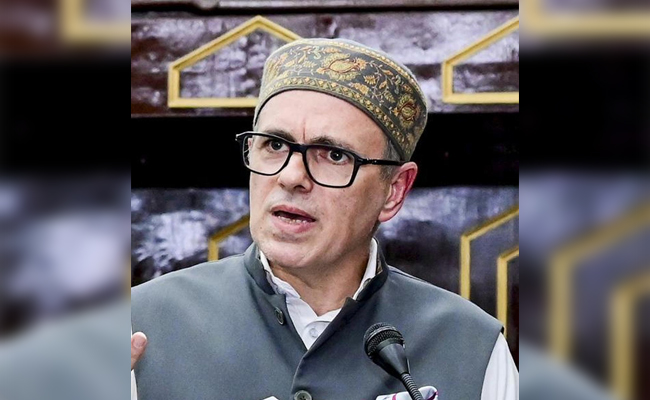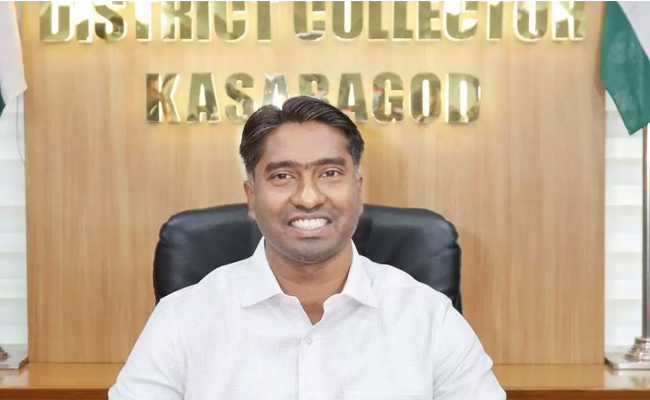Abu Dhabi: Royal Challengers Bangalore pacer Mohammed Siraj, who ripped through Kolkata Knight Riders' top-order with a "magical performance", said skipper Virat Kohli's surprise decision to hand him the new ball lifted his confidence in the IPL match here.
Siraj's first three wickets came without conceding a run as he became the first bowler in IPL history to bowl two maidens in a single game. RCB restricted KKR to a paltry 84/8 and chased down the target in 13.3 overs.
Once Chris Morris generated swing early on, Siraj was asked to bowl the second over following a discussion with wicketkeeper AB de Villiers.
"We hadn't planned that I would open but when we went out, Virat bhai said 'Miyan, ready ho jao (Sir, get ready!), you will have to bowl...' It boosted my confidence," the Hyderabadi pacer, who returned with figures of 4-2-8-3, said after the eight-wicket win on Wednesday.
"Morris beat the batsmen (in the first over) and then Virat bhai spoke to AB de Villiers (behind the stumps) and gave me the bowl," he added.
"Initially, I didn't think it would swing so much after seeing the wicket. I just backed my strength and really enjoyed a lot."
Brought in the second over, Siraj struck in his third ball with a good length ball that went away of Rahul Tripathi.
In his next delivery, he cleaned up Nitish Rana, with a ball that sharply cut back in and breached the left-hander's defence. In the next over, he accounted for Tom Banton with another outswing delivery.
His bowling figures became the most economical this season. A natural in-swing bowler, Siraj has been practising with the new ball and generating outswing in the practice sessions.
"I've been a natural inswing bowler but while practising I have started bowling outswing a lot better.
"In our practise sessions, we have Devdutt Padikkal and Parthiv Patel. I bowl the same length to them which I bowled to Nitish Rana. I did the same thing in the game and was able to execute it well," he said.
Having endured a tough outing against the same side in 2019, it's now a story of going from being zero to hero for Siraj.
Siraj was hammered for 36 runs in 2.2 overs before being removed from the attack for bowling two beamers as KKR chased down 206 with five balls to spare in their IPL 2019 match.
In the same game, Siraj had also dropped a sitter from Chris Lynn and faced a lot a criticism.
Often sidelined in presence of Chris Morris, Navdeep Saini and the spin duo of Yuzvendra Chahal and Washington Sundar, Siraj got his fourth match on Wednesday when he was included in place of Shahbaz Ahmed.
"I've always had a lot of support from the RCB setup. All I wanted to do this year was give a magical performance. I wanted to do something different this year," Siraj, who played his fourth match of the season, said.
"Whenever I used to think about my performance in the IPL, I had made up my mind that I would deliver a performance to remember. It's about doing something different, something magical," he concluded.
Let the Truth be known. If you read VB and like VB, please be a VB Supporter and Help us deliver the Truth to one and all.
New Delhi (PTI): India holds sufficient crude and fuel inventories to meet domestic demand for petrol, diesel, and other fuels for six to eight weeks, top government sources said, cushioning the country against any short-term supply disruption amid escalating military conflict in West Asia.
About half of India's crude and LPG imports transit the Strait of Hormuz - the key energy chokepoint that has seen disruptions following US and Israeli attacks on Iranian government, military and nuclear facilities. Iran warned shipping away from the strait, and insurers withdrew coverage, effectively halting tanker movements.
A top oil ministry official, who wished not to be named, said the government is monitoring the situation "on a daily and hourly basis" and is confident of navigating through the crisis that by some estimates may last a week or ten days.
While the country has crude oil stocks to last 25 days and fuel to last a similar duration, contingency plans - including using stockpile in strategic petroleum reserves, commercial stocks, and diversified sourcing from the US, Russia, West Africa, and Latin America - will ensure continuity even if the crisis lasts longer.
While immediate shortages are unlikely, rising crude prices and higher freight and insurance costs could impact India's import bill and inflation.
Separately, the ministry in a statement said Oil Minister Hardeep Singh Puri "briefed the media on the country's preparedness in the current circumstances" and it was informed that "the country is well stocked with crude oil and inventories of key petroleum products including petrol, diesel and ATF to deal with short-term disruptions arising from the Middle East."
It, however, did not give details of the stocks.
"The Ministry has established a 24×7 control room to continuously monitor the supply and stock position of petroleum products across the country," it said.
"At present, the government is reasonably comfortable in terms of stocks. Safeguarding the interests of Indian consumers remains the highest priority. Based on continuous monitoring, the government is cautiously optimistic that phased measures can be taken, if required, to further mitigate the situation."
India is the third largest importer, fourth largest refiner, and fifth largest exporter of petroleum products globally.
"It was further apprised that in the last few years, India has ensured both availability and affordability of energy for its population by diversifying its sources. Indian energy companies now have access to energy supplies that are not routed through the Strait of Hormuz.
"Such cargoes will remain available and help mitigate supplies that may be temporarily affected enroute through the Strait of Hormuz," the statement said.
The official said that while this year crude sourced from the countries that use the Strait of Hormuz is above 50 per cent due to a drop in Russian cargoes, the average over the past couple of years has been 40 per cent. The remaining 60 per cent is not shipped from the Strait.
Crude oil -- the raw material that is turned into fuels like petrol and diesel in refineries -- in storage tanks, pipelines and on ships in transit is enough to meet the country's requirement for 25 days. Besides, there are stock of fuel in refineries, deposits, pipelines and other storage facilities that could meet demand for a similar duration, he said.
On top of this, there is crude oil stored in underground strategic reserves.
The country's commercial crude oil stocks, including strategic petroleum reserves at Mangalore, Padur, and Visakhapatnam, total around 100 million barrels. This, along with additional refined product inventories, provides a substantial buffer against short-term disruptions.
"We are in a reasonably comfortable situation," the official said.
The official said India was looking to import LPG even before the Iran crisis broke out last weekend. An issue with the pipeline in Saudi Arabia, the principal supplier of LPG to India, had created a deficit of 120,000 tonnes.
"There are a large number of producers, and we are tapping them," the official said.
With imports via the Strait of Hormuz averaging roughly 2.5 million barrels per day -- about half of India's just over 5 million bpd total crude imports -- these combined reserves could theoretically cover around 40-45 days of imports in a crude disruption scenario, he said.
Additional refined product inventories would extend effective coverage further.
However, the immediate impact will be on prices. Brent, the global benchmark, crossed USD 80 per barrel, roughly 10 per cent more since the Iran crisis. For India, higher prices means higher import bill.
India spent USD 137 billion on crude oil imports in the fiscal year ended March 31, 2025. During April 2025 to January 2026 - the first ten months of the current fiscal year - it spent USD 100.4 billion on imports of 206.3 million tonnes of crude oil.
The United States and Israel launched military strikes on targets in Iran over the weekend. Tehran retaliated with missiles and drones aimed at Israel and countries hosting US forces, including the United Arab Emirates, Qatar, Kuwait, Bahrain, Iraq, Jordan and Saudi Arabia.
Media reports suggest the conflict has effectively closed the Strait of Hormuz, a key conduit for global energy flows. Roughly one-third of the world's seaborne crude oil exports and about 20 per cent of liquefied natural gas shipments transit the narrow waterway.
India, the world's third-largest oil importer, imports roughly half of its crude needs through the narrow Strait. Its mainstay liquefied natural gas (LNG) supplier in Qatar also uses the strait to ship the fuel to India.
In case of closure, India can tap suppliers in West Africa, Latin Amercia and the US to make up for the shortfall from the Middle-East. India could also tap Russian oil to make up for the deficit.
India had agreed to wind down purchases of Russian oil as part of a trade deal with the US - a deal which now sits in limbo after the US Supreme Court struck down US President Donald Trump's country-based tariffs.





